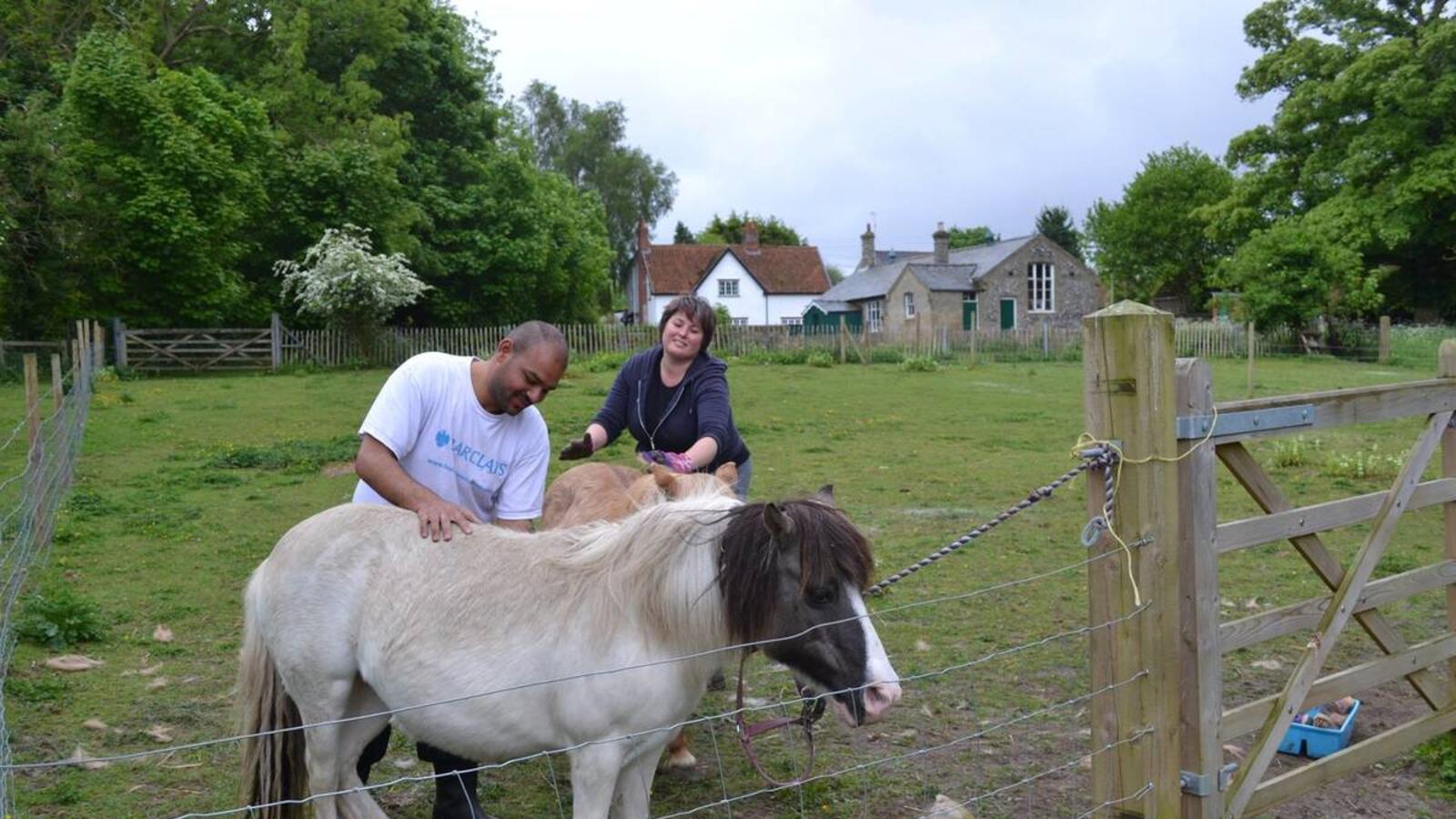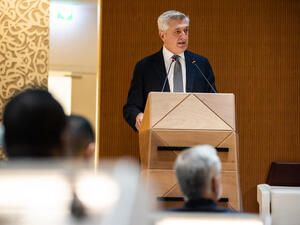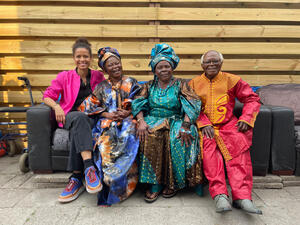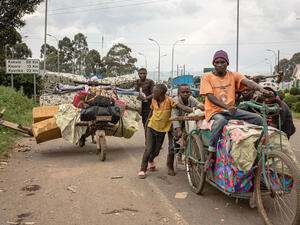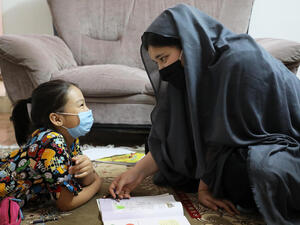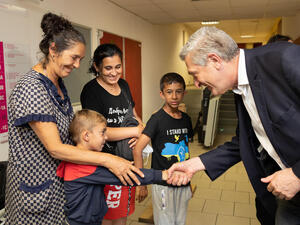Farmhouse welcomes refugees to the British countryside
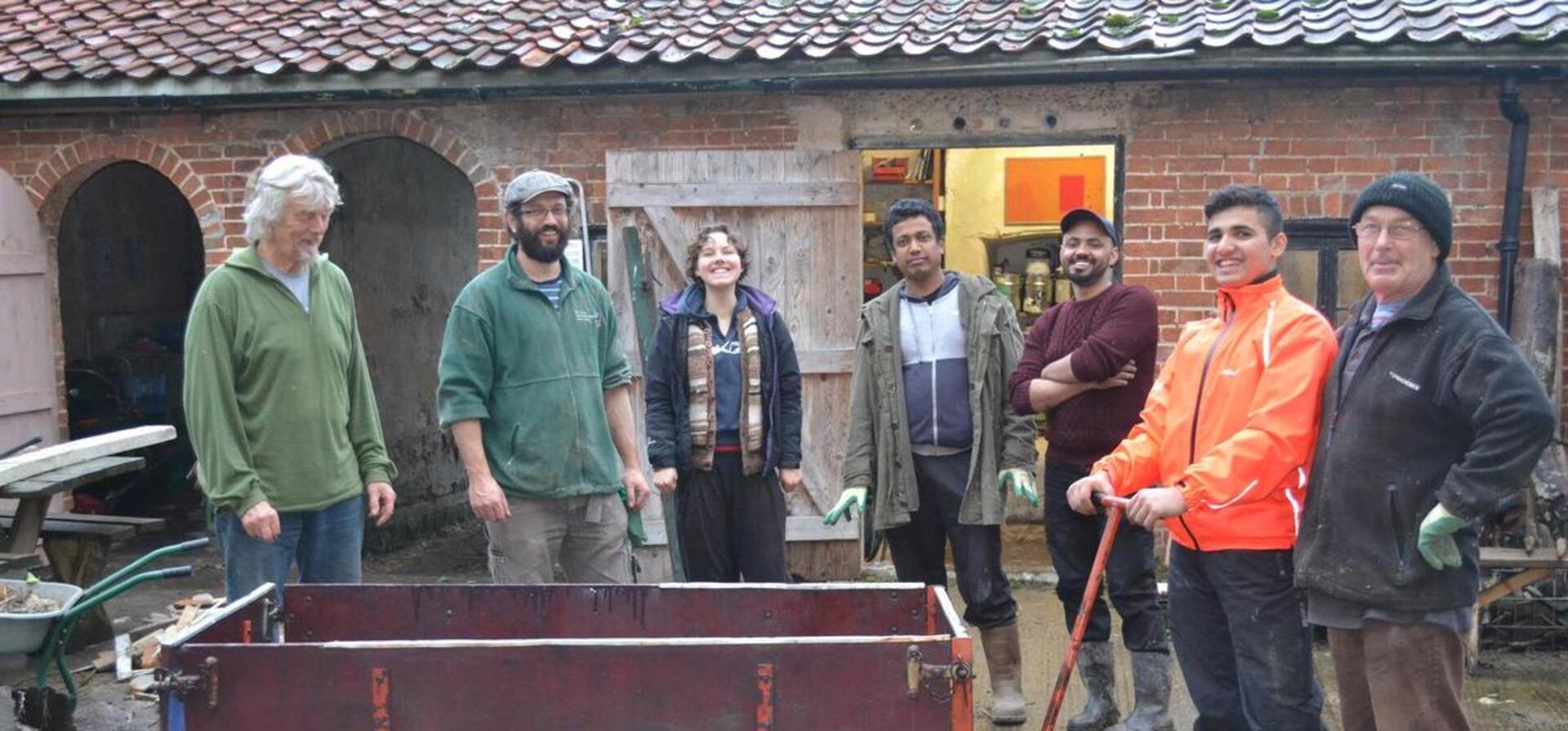
Farmhouse welcomes refugees to the British countryside
Sudanese refugee Noah, 27, admits that when he first came to The Grange he wasn’t sure what to expect. But after meeting the manager of the farmhouse an instant friendship was struck, which is still going strong two years later.
The Grange is a 1750s farmhouse and permaculture site, home to ponies, guinea pigs and sheep. It sits amidst ten acres of lush and tranquil landscape in rural Norfolk in the east of England. Six years ago, residents Ben and Sophie decided to open the farm to refugees and asylum-seekers in the UK. It is a decision they say they have never regretted.
The refugees who visit every week can learn different skills such as painting, weaving, ceramics, cooking and agriculture.
“We don’t really have any expectations of anyone,” says Ben. “But what we normally find is that people have skills to share and they don’t normally have an expression for that.”
"They realize that an asylum-seeker is not a statistic, it’s a real person."
Noah, who had been studying medicine in Sudan before he was forced to flee, heard about The Grange from another organization called New Routes which organizes weekly transport to the farm. At the time, he was a newly arrived asylum-seeker with hardly any connections in the community.
“Before I came here, I stayed at home,” says Noah. “I felt I was in prison and I couldn’t practice my English with anyone.”
“The first time Noah came here, he came with two other Sudanese men,” says Ben. “They were very quiet, straight on their phones, sort of buried in their own little world. One day he asked if he could build an oven and we said, ‘go for it,’ because we enable opportunity as much as possible. He built the most beautiful oven and made bread for everyone and we realized he is a cook. He is an amazing cook.”
When Noah arrived in the UK, he was detained for 72 hours before being transferred to a reception facility, which became his home for a month before he moved to Norwich.
But not all those who come to the UK are detained for a short time like Noah. There is currently no limit on the time the UK government can detain asylum-seekers and UNHCR is advocating for the increased use of alternatives to detention. In 2016, over 38,000 people sought asylum in Britain, according to the Home Office, and 13,200 asylum-seekers were held in immigration detention. Over 3,200 were being detained under immigration rules at the end of March 2017.
Now Noah has a ‘leave to remain’ permit, allowing him to work and study in the UK with the possibility of applying for citizenship after a few years.
Eager to learn new skills to help him fully integrate into British society and give something back to the community, Noah is currently studying English, chemistry and biology so he can go back to university and study medicine. In his free time, he acts with a local theatre group and eagerly awaits Mondays so he can sign up for the bus that takes him and others to the Grange later in the week.
Ben says the local community has been very supportive of the farm’s initiative.
“We have people donating things, donating time, volunteering and a lot of people who might have been mistrustful of asylum-seekers because of what they read in the media. They realize that an asylum-seeker is not a statistic, it’s a real person who has been through trauma and has a lot to offer.”
“The fact that they come here, share their food and cooking from all over the world, has really been fantastic for the village,” concludes Ben. “We feel privileged to just be accepted by them.”

